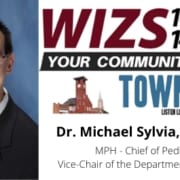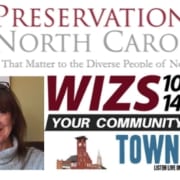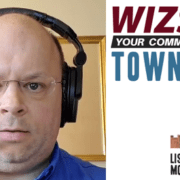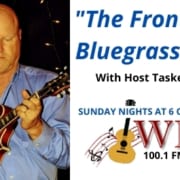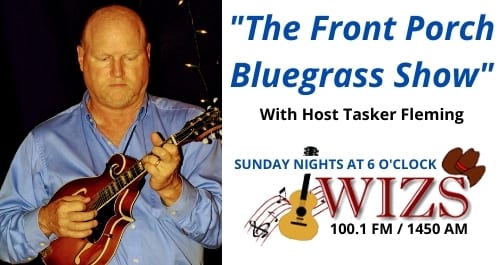TownTalk 5-3-21 Dr. Michael Sylvia, Chief Of Pediatrics, Maria Parham Health
Children can safely return to school said Dr. Michael Sylvia, Chief of Pediatrics at Maria Parham Hospital, earlier today on TownTalk.
TownTalk broadcast audio and written story below.
In the past year or so, experts and laypeople have spoken at length about all the complications brought on by COVID-19 and the effects it has had, both in the community and across the globe. But one local pediatrician said Monday he would offer a simple response to the question about children’s safe return to school: Yes.
“The short answer is yes, it is safe to send your child- and kids – back to school,” said Dr. Michael Sylvia, chief of Pediatrics and vice chair of the department of Medicine at Maria Parham Medical Center.
“We know that school is incredibly important, not just for the learning’s sake, but there’s a lot of social skills that kids develop in school, especially in the 6- to 12-year age group, that pre-adolescent range,” Sylvia told John C. Rose on Monday’s segment of Town Talk.
He said children invariably will come home with the everyday, run-of-the-mill germs that cause colds, stomach bugs and other common ailments when they do return to in-person school full-time. But it is important for parents and other adult family members to be able to discern those routine symptoms and not jump to the conclusion that the child has COVID-19.
“Kids share germs – it’s inevitable,” he said. Symptoms such as a high fever, sore throat, shortness of breath, chills and body aches, and loss of taste or smell could indicate something more than just a standard cold, he said. If a child complains of those symptoms, or has been exposed to COVID-19, a call to the doctor is in order for possible testing.
As children return to group activities like sports, it’s going to be important to be vigilant about hand washing and not grabbing the wrong water bottle.
But not letting young people play sports could have a more negative impact than letting them get back on the fields for practice and games. “Sports is huge for team building and emotional development,” Sylvia said. “I’m all about kids getting out and exercising.”
Parents who notice changes in their children’s behavior – physical or emotional – should talk with their pediatrician. “The one thing that parents can do is just be open,” Sylvia said. “Share your concerns with your child.”
Sylvia commented on the ongoing research around COVID-19 and how it affects different age groups. Teenagers are still far less likely to catch COVID-19 or have symptoms bad enough to put them in hospital, he said. Younger children are even less likely to experience symptoms, he added. But children are still being included in clinical trials, and the research can help health experts target the age ranges that should be vaccinated.
“We’re optimistic that we’ll have some pretty good information about vaccines in kids by summer,” Sylvia said.
The decision to vaccinate young children has yet to be made, but Sylvia said it probably would be a good idea, even if there is a low incidence of infection. Why? “It’s (for) the child or the adult in the community who can’t get the vaccine for health reasons,” he said.
“I’m optimistic that we will be through this in the near future,” Sylvia said. “Parents just have to stick it out just a little longer.”

